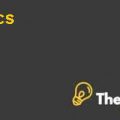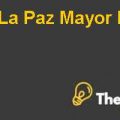
Literature Review
Nowadays, the concern for Business Ethics is growing rapidly in the business community around the world. Business ethics are focused on the judgment of decisions taken by managers and their behaviors. The issue regarding these judgments is the norms and cultures that shape these judgments. Business ethics are concerned about the issue, how will the issue be solved and how will it move ahead along the transition analysis as well (Archie B. Carroll, 2014).
Business ethics can be addressed at different levels that include business, societal, industrial and personal. Obligations and responsibilities are a major question in ethics that also address the conflict existing between the two subjects. Several ethical principles are proposed to help or facilitate the decision-making process.
An individual’s behavior can be impacted by various organizational factors which lay a strong impact in shaping the behavior of individual. The behavior of individuals and the ethical practices of industry, are considered as the most influencing factors that shape a firm’s ethical climate, while the societal impact that shapes the moral climate of society and the individual needs are less impacted (Archie B. Carroll, 2014). Recent studies have shown the people working in a business environment are feeling the heat and are under real pressure to perform ethically in an organization while performing their responsibilities (Jamnik, 2011).
The moral decisions of superiors and the decision making along with the legality of acceptance are considered as the most important factors as they raise questions regarding the ethical atmosphere in the organization. Furthermore, the unethical practices of the leadership and expecting loyalty and conformity from employees are also major concerns towards forming an ethical environment in an organization. Organizations do not feel the pressure they are putting on the employees and inadequate policies are also considered as the major unethical practices that are common in organizations (Archie B. Carroll, 2014).
Code of Conduct
Organizations have been in search of different concepts and ideas in order to improve their ethical environment and have adopted different mechanisms or methods. Some of the common mechanisms include conducting ethical audits, whistle blowing and providing training to employees regarding ethical behaviors and its importance. Adding more to the methods adopted by the organization include setting a code of conduct, designating the ethical duties, assigning realistic jobs, and most importantly, effective communication that can help immensely towards improving the ethical environment of organizations (Archie B. Carroll, 2014).
The responsibility of setting standards for performing ethical behaviors and communicating the set standards to the people in the organization effectively is of the top management in the organization. The most classical method of setting and communicating these standards is by establishing or setting a code of conduct which needs to be followed by everyone in the organization. Studies show that around 95% of organizations have made certain code of conducts to ensure ethical behavior, but the issue is regarding the implications of these codes and the attitudes of managers and the policies they make (Garone., 1994)
Self-regulation is always considered as the most favorable option or given more priority over government regulations by most of the CEO’s of organizations around the globe. The managers are of the believe that people are quite capable of monitoring themselves, and they don’t need any monitoring or guidelines given by either governments or the organizations they are working. This view of managers is a proof of the importance of codes of ethics and the importance of these codes in self-regulation in organizations (Aguilar, 1994).
The codes of ethics provide various advantages to organizations as well as consumers and can prove to be very beneficial. One of the major advantages is the guidance provided by these codes to employees during an ambiguous situation and help them follow the right pattern. Another major advantage of these codes is the provision of autocratic power to employees, which enables them to restrict their managers from assigning them unrealistic tasks. Furthermore, these codes of ethics also guide managers towards taking moral decisions and keeping them aware of the social responsibility in shaping competitive strategies. On the other hand, many legal benefits can be achieved by the subjected code of conducts and can give a boost to the company’s pride and increases loyalty. They increase the goodwill of the company, product quality and overall productivity of the company as well (Ethics Resource Center, 2003)........................
This is just a sample partial case solution. Please place the order on the website to order your own originally done case solution.












